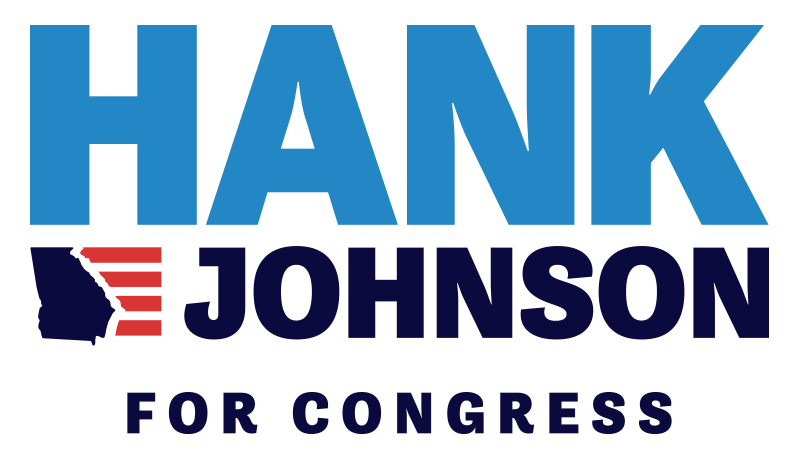WASHINGTON, D.C.— Rep. Johnson voted to pass H.R 987, the Strengthening Health Care and Lowering Prescription Drug Costs Act, a major piece of legislation that addresses two top concerns of the American people – lowering prescription drug prices and defending vital protections for people with pre-existing conditions. This bill is a critical component of the For The People agenda.
“The American people are demanding congressional action to bring prescription drug prices down, and who can blame them,” said Rep. Johnson. “That is why this legislative package, providing some needed relief on drug prices to the American people, is so important. This legislation begins to fulfill the promises we have made as part of the For The People agenda. I am so proud to be joining my colleagues in passing this major legislation that will begin to bring down drug costs by removing barriers to lower-cost generic drugs entering the market earlier. The nonpartisan CBO agrees that all three of these drug pricing bills will result in lower prescription drug costs.”
This bipartisan omnibus bill includes three bills to lower prescription drug costs by helping lower-priced generic drugs get to market faster and four measures to reinforce the protections for people with pre-existing conditions and expand enrollment in quality, affordable coverage to more Americans. This bipartisan package invests most of the savings created by the bills promoting generic competition into strengthening our health care system by increasing enrollment in quality coverage and helping interested states set up their own state-based marketplaces, which outperform the Federal marketplace.
Getting more lower-priced generic drugs into the prescription drug market is a key way to create billions of dollars in cost savings for consumers and taxpayers. For example, in 2017 alone, the entry of generic drugs into the market saved consumers and taxpayers a total of $265 billion. According to one estimate, the average drug price decreases by 50 percent in the first year of generic entry, with an 80 percent reduction in five years.
The bipartisan legislative package includes the following three key drug pricing measures to remove barriers to lower-priced generic drugs getting to market and competing with brand-name drugs, thereby creating significant savings for consumers:
- The CREATES Act: Currently, certain brand-name manufacturers use tactics to withhold or delay generic manufacturers getting from them the brand drug samples they need to develop their generic products. This bill establishes a process by which generic manufacturers are able to obtain sufficient quantities of the brand drug samples, thereby blocking these delaying tactics.
- The Protecting Consumer Access to Generic Drugs Act: Currently, brand-name drug manufacturers can enter into a “pay-for-delay” agreement in which the brand-name manufacturer pays the generic manufacturer to delay bringing a generic equivalent to market, significantly hurting consumers. This bill makes these “pay-for-delay” agreements illegal.
- The BLOCKING Act: Currently, the first generic applicant to FDA is granted 180 days of market exclusivity, but some generics then fail to move the product to market, called “parking” – thereby blocking other generics from applying to FDA. This bill allows generics to get to market earlier by changing the rules on “parking.”
“I am also proud today to be voting to pass a legislative package that also includes vital provisions to strengthen our health care system, including reinforcing protections for people with pre-existing conditions by revoking the devastating Junk Plan rule; expanding the number of Americans with quality, affordable health coverage, by restoring funding for consumer outreach and enrollment assistance, as well as Navigators; and helping states to create their own state-based marketplaces, thereby giving states the power to create new approaches that expand coverage and lower costs,” Rep. Johnson added.
The bipartisan legislative package also includes the following four measures to improve our health care system by revoking the Junk Plan rule, thereby reinforcing protections for pre-existing conditions; expanding the number of individuals with quality, affordable coverage; and helping more states create state-based marketplaces:
- The SAVE Act: This bipartisan bill appropriates $200 million to assist interested states in creating their own state-based marketplaces. State-based marketplaces are outperforming the Federal marketplace, achieving lower premiums and higher enrollment. This bill empowers states to implement new approaches that lower costs and expand coverage for American families, thereby improving our health care system.
- The MORE Health Education Act & The ENROLL Act: These bills, containing provisions similar to provisions in the bipartisan Alexander-Murray proposal put forward in the Senate in the last Congress, restore critical funding for marketplace consumer outreach and enrollment education activities, as well as critical funding for the Navigator program, both of which the Trump Administration has slashed. CBO estimates this funding will result in about 500,000 additional enrollees in nongroup quality, affordable coverage and Medicaid each year over the next 10 years.
- Rescinding the Trump Administration’s Devastating Junk Plan Rule: This bill reinforces the protections for people with pre-existing conditions by revoking the Trump Administration’s rule that promotes the sale of junk plans, which discriminate against people with pre-existing conditions and do not cover essential benefits. A recent KFF poll finds that, by 53% to 37%, Republicans oppose junk plans.
“This bipartisan legislative package is a key step forward in addressing the top concerns of the American people – lowering the costs of prescription drugs and protecting the ACA’s strong protections for people with pre-existing conditions,” Rep. Johnson concluded. “House Democrats are hard at work on moving the For The People agenda forward, acting boldly to strengthen health care protections for all and bringing down the skyrocketing costs of prescription drugs. In the weeks and months ahead, I will work with my colleagues to advance bipartisan ideas that ensure that every Georgia family and every American has access to the quality, affordable health care that is their right.”
# # #

